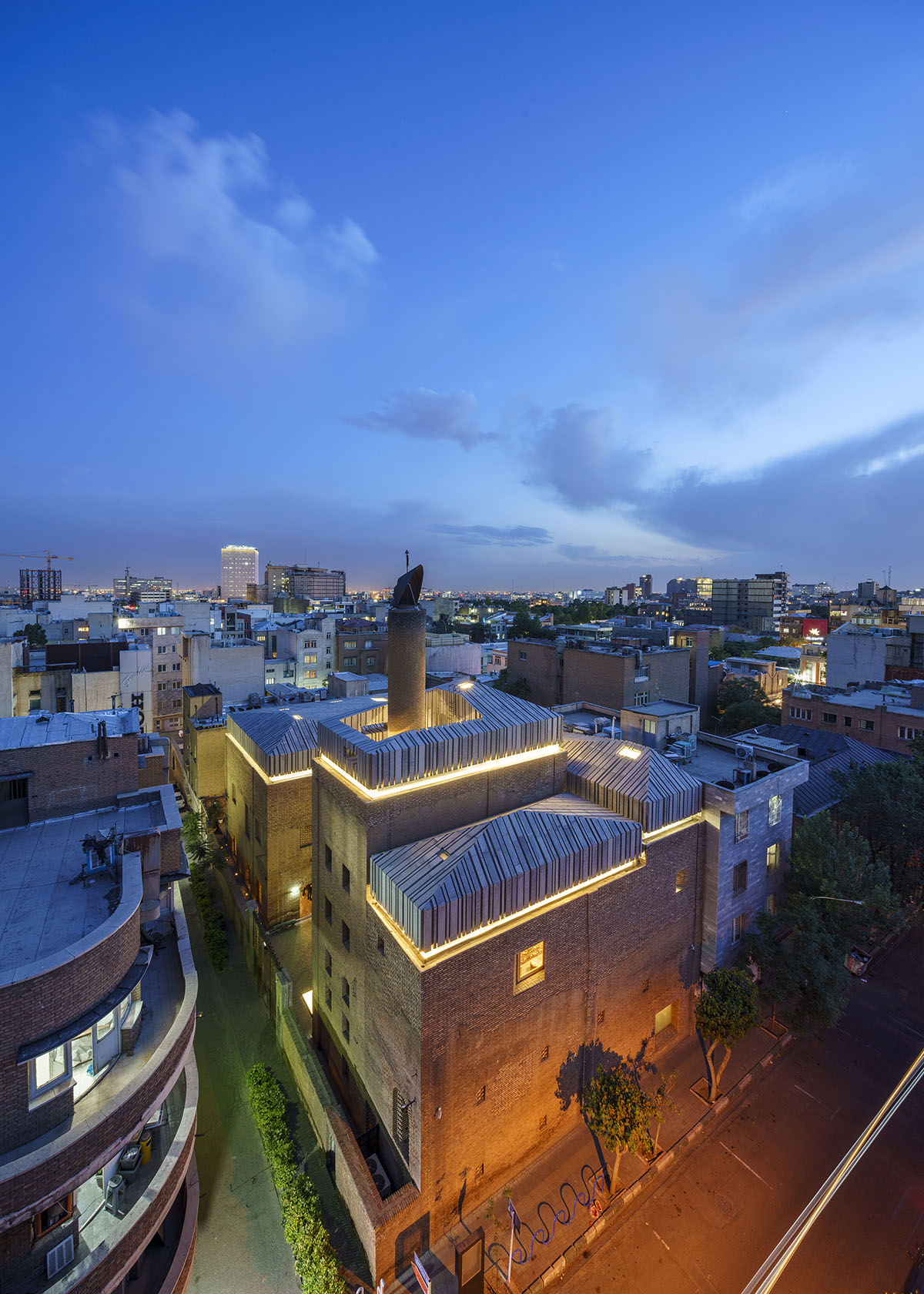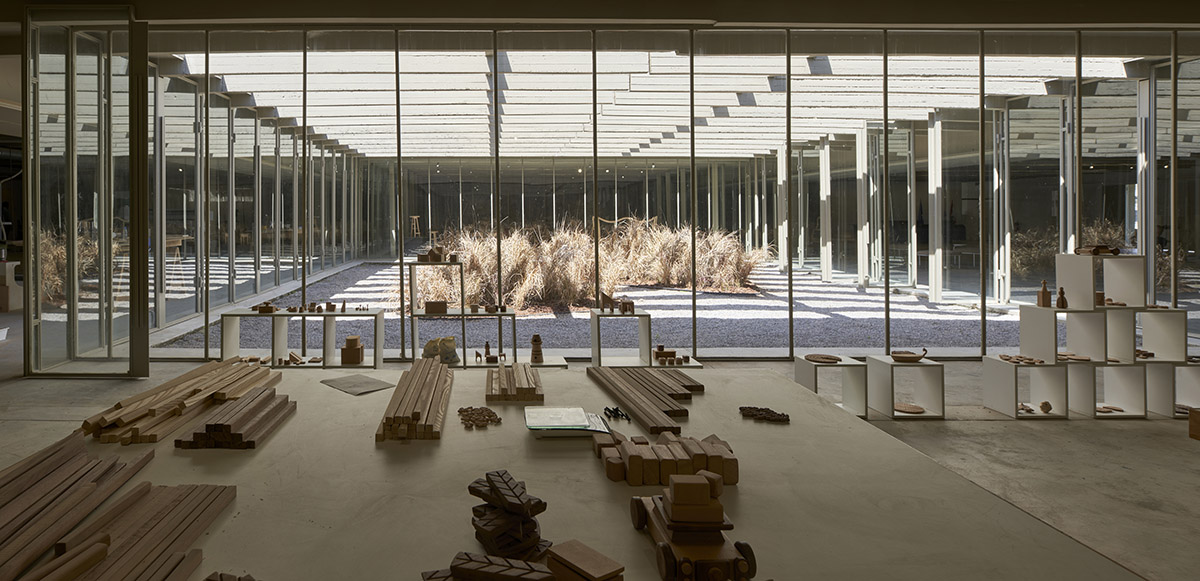Submitted by WA Contents
Aga Khan Award For Architecture announces Master Jury for 2025
Switzerland Architecture News - Oct 04, 2024 - 13:18 4683 views

The Aga Khan Award for Architecture has announced the Master Jury for the 16th Award cycle, 2023-2025. The independent panel that will choose the recipients of the esteemed US$ 1 million Award will convene in January to assess and narrow down projects from among the hundreds of submissions received from across the globe.
The nine members of the Master Jury for the 16th Award cycle include Azra Akšamija, MIT Professor & Director, Art, Culture and Technology Program, Noura Al-Sayeh Holtrop, Advisor for Heritage Projects, Bahrain Authority for Culture and Antiquities, Manama, Bahrain, Lucia Allais, Director, Buell Center, Columbia University Graduate School of Architecture, Planning and Preservation, New York, David Basulto, Archdaily Founder, Pritzker Prize laureate Yvonne Farrell, Kabage Karanja, Co-founder, Cave_bureau, Nairobi, Kenya; Assistant Professor of Architectural Design, Yale University, Yacouba Konaté, Professor of Philosophy, University Félix Houphouët Boigny of Abidjan-Cocody, Abidjan, Côte d'Ivoire, Hassan Radoine, Director General & Full Professor, Citinnov SA for Integrated Territorial Planning and Smart Cities, Mohammed VI Polytechnic University, Rabat, Morocco, Mun Summ Wong, Professor-in-Practice, Department of Architecture, College of Design and Engineering, National University of Singapore; Co-founding Director, WOHA.

Community Spaces in Rohingya Refugee Response, Teknaf, Bangladesh, by Rizvi Hassan, Khwaja Fatmi, Saad Ben Mostafa. Aerial view of the Safe Space for Women and Girls in Camp 25. The activity areas and rooms are organised around an open courtyard, connecting them into one larger space. Image © Aga Khan Trust for Culture / Asif Salman
Projects will be subjected to thorough on-site evaluations by impartial experts, the majority of whom are architects, conservationists, planners, or structural engineers, after the shortlist is chosen.
The second meeting of the Jury is scheduled for the summer of 2025, when they will review the on-site reviews and choose the winners.
Architecture not only meets people's physical, social, and economic needs but also inspires and fulfills their cultural aspirations is given special consideration during the selection process.
Special consideration is given to building plans that creatively make use of available local resources and relevant technology, as well as projects that have the potential to spur comparable initiatives elsewhere.

Argo Contemporary Art Museum & Cultural Centre, Tehran, Iran, by ASA North / Ahmadreza Schricker. Aerial view of the museum by night. Image © Aga Khan Trust for Culture / Deed Studio
His Highness the Aga Khan serves as the chair of the steering committee that oversees the Aga Khan Award for Architecture. The following people make up the steering committee:
- Meisa Batayneh, Principal Architect, Founder, maisam architects and engineers, Amman, Jordan
- Souleymane Bachir Diagne, Professor in the departments of French and Philosophy, Columbia University, New York, USA
- Lesley Lokko, Founder & Director, African Futures Institute, Accra, Ghana
- Gülru Necipoğlu, Director and Professor of the Aga Khan Program for Islamic Architecture, Harvard University, Cambridge, USA
- Hashim Sarkis, Dean, School of Architecture and Planning, Massachusetts Institute of Technology, Cambridge, USA
- Sarah M. Whiting, Dean, Graduate School of Design, Harvard University, Cambridge, USA

Renovation of Niemeyer Guest House, Tripoli, Lebanon, by East Architecture Studio. Central courtyard with the glazed partitions. Image © Aga Khan Trust for Culture / Cemal Emden
The Aga Khan Development Network (AKDN) agency Aga Khan Trust for Culture (AKTC), which incorporates cultural heritage into its broader development strategies, is home to the Aga Khan Award for Architecture.
The Aga Khan Award for Architecture was established in 1977 by His Highness the Aga Khan "to identify and encourage building concepts that successfully address the needs and aspirations of communities in which Muslims have a significant presence."
The Award’s selection is based on a rigorous process and recognizes projects "that not only provides for people’s physical, social and economic needs, but that also stimulates and responds to their cultural aspirations."
Top image in the article: Palestinian Museum in Birzeit, Palestine by Heneganh Peng Architects. Image © Aga Khan Trust for Culture / Cemal Emden.
